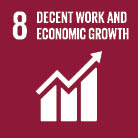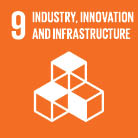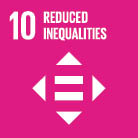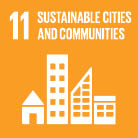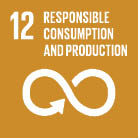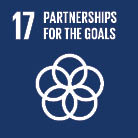Financial Capital
At CTIL, we consistently endeavour to generate value for our esteemed shareholders. We achieve this by delivering sustainable returns, regularly. Our approach to capital allocation is prudent, ensuring that it fuels profitable growth while allowing us to maintain dividend payments to our investors.
Sustaining Financial Triumphs with Precision
We recognise the pivotal role of financial capital in our Company's growth and success. Our commitment to fiscal foresight and continual profitability forms the bedrock of our approach. Guided by this philosophy, we prioritise astute cost management and balanced financial growth. Methodical distribution of capital in favourable prospects across our Real Estates and Pulp and Paper segments helps us fortify our financial standing while elevating operational efficacy. This strategic allocation ensures the long-term prosperity of our Company and those invested in its success.
Key Highlights of the Year (Consolidated and including Discontinued Operations):
- Sales: ₹ 5,049.96 Crores
- Profit After Tax: ₹ 60.38 Crores
- Debt to Equity Ratio: 0.61
- Net Worth: ₹ 4,094.70 Crores
- Market Capitalisation: ₹ 18,205 Crores (as on 31st March, 2024)
- Operating Margin: 5.86%
- Net Profit Margin: 1.13%
- Debt Service Coverage Ratio: 1.12
- Dividend Payout Ratio: 50%
- EBITDA: ₹ 376.60 Crores
SDG Linkages
Key Material Topics Under Manufacturing
-
Business Ethics
-
Compliance
-
Corporate Governance
Linkages with NGRBC Principle:
- Section A
- Principle 1
- Principle 2
- Principle 8
Linkages with other Capitals:

Natural Capital: Strategic investments in energy conservation, water reduction, and waste reduction lead to optimised operating expenses and improved financial performance. By preserving natural resources, our Company can achieve long-term sustainability.

Intellectual Capital: Investing in R&D creates cutting-edge goods and technology that boosts sales and provides businesses with a competitive edge in the market. Intellectual capital fuels growth and ensures relevance in a dynamic business landscape.

Social and Relationship Capital: Investing in CSR and community service projects boosts stakeholder trust and brand recognition contributing to long-term financial security.

Human Capital: A focus on enriching employee learning and development initiatives with enticing benefit packages serves to attract and retain premier talent, leading to heightened productivity and augmented financial gains in the long term.

Manufactured Capital: Through the adoption of advanced technology and streamlining of production methods, operational efficacy can be enhanced, expenses can be curtailed, and profitability can be optimised within manufacturing.
Economic Value Generated
Through FY 2023-24, we strived to optimise our financial management practices. This was achieved through improving process efficiency, efficient resource utilisation, technology optimisation, and improved inventory management, among other practices. As a result, compared to last year, our Company has seen an improvement in the 'Economic Value Retained'. Improved demand conditions, specifically in the Real Estate segment, contributed to an improvement in the Economic Value Retained.
Consolidated and including Discontinued Operations
| FY 2023-24 in Crores | FY 2023-24 | |||
|---|---|---|---|---|
| Particulars | Continuing | Discontinued | Total | in Crores |
| Sales | 4,263.96 | 786.00 | 5,049.96 | 4,719.32 |
| Other operating income | 249.58 | 21.46 | 271.04 | 80.33 |
| Other Income | 56.47 | 3.59 | 60.06 | 27.52 |
| Direct Economic Value Generated (A) | 4,570.01 | 811.05 | 5,381.06 | 4,827.17 |
| Operating Costs | 3,736.54 | 840.11 | 4,576.65 | 4,149.39 |
| Employee Benefits | 320.80 | 58.11 | 378.91 | 344.83 |
| Payments to Providers of Capital | 35.51 | 25.72 | 61.23 | 53.89 |
| Community Investments | 4.87 | - | 4.87 | 5.18 |
| Payments to Governments | 145.03 | 131.59 | 276.62 | 141.70 |
| Share of Loss of JV | 22.40 | - | 22.40 | 1.84 |
| Economic Value Distributed (B) | 4,265.15 | 1,055.53 | 5,320.68 | 4,696.83 |
| Exceptional Gain (C) | - | - | - | 134.21 |
| Economic Value Retained (A-B+C) | 304.86 | -244.48 | 60.38 | 264.55 |
Creating Value for Shareholders and Investors
We maintain our long-term commitment to creating positive value for all our shareholders and ensure significant returns for them on their investments. Through our impeccable financial management and strict adherence to our corporate values, we have continued to give our shareholders' investments the maximum priority. Over the last financial year, the market cap has increased by 157%.
Investor and shareholder relations are given utmost priority at CTIL. We have hired a specialised external investor relations management agency to manage relations and engage with our investors. Given below is the summary of the work done along with our investor manager:
Investors Awareness
-
Identifying and Meeting Prospective Investors
-
Creating & Improving Fundamental Understanding
-
Increasing awareness about the company and its performance amongst the investor community
Bridging the Gap
-
Enhancing Investor Reach by Leveraging Relationships
-
Managing Investor Feedbacks strategically
Creating a pull factor
-
Proactively meeting with the investor community to create a better fundamental understanding of the company
-
Positioning Valorem as a peer analyst, without being formal as a corporate representative
-
Building and maintaining cordial relationships with analysts
-
Performing regular follow-ups to reach the desired outcome
Investor Feedback & Perception Management
-
Get Candid feedback from the investor community, which they may not share directly with companies
-
Receive recommendations based on feedbacks received by Valorem, for management strategic decisions
-
Addressing negative feedback or perceptions in a strategic manner
Cost Management and Efficiency
Understanding the unique cost dynamics and challenges within each sector, we tailor our approach accordingly and have set many focus areas. In Real Estate, we emphasise cost control in construction and development. For Pulp and Paper, our focus lies in maximising the efficient utilisation of raw materials.
We use cost analysis to identify important cost drivers and opportunities for improvement in order to succeed in these focus areas. Through strategic sourcing, process optimisation, and efficient resource allocation, we continually strive to reduce costs while maintaining quality and productivity standards. Vigilant monitoring of cost structures enhances our competitive edge and ensures the long-term financial sustainability of each business vertical.
Here are examples illustrating our efforts in driving efficiency and cost optimisation across our business segments:
Real Estate: Efficient Project Delivery through Scalable Outsourcing Model
In Real Estate, we have implemented a highly scalable outsourced model to ensure efficient project delivery. Collaborating with Grade “A” execution partners, we emphasise timeliness, quality, and safety. Project execution is entrusted to appointed contractors under vigilant CTIL supervision. Rigorous planning, internal checks, and safety tests ensure superior quality and cost efficiency.
Pulp and Paper: Streamlined Cash Management and Enhanced Efficiency
In the Pulp and Paper segment, we continuously enhance cash management practices to maintain a lean financial position. Initiatives include:
-
Revolutionising vendor liquidity with a novel bill discounting scheme.
-
In-depth analysis of cash flow items to bolster refunds, claims, and non-trade receivables.
-
Comprehensive reviews of project financials with long-term payback periods.
We are focussing on reducing costs by increasing efficiency in manufacturing processes. One key initiative involves reducing chemical usage by fine-tuning application practices, resulting in cost savings without compromising product quality. Additionally, we prioritise packaging efficiency through innovative designs and materials to minimise waste. Towards working capital management, we have implemented robust systems, including just-in-time inventory management, and Vendor Managed Inventory (VMI). Leveraging economical alternatives for non-core items additionally enhances efficiency.
We implemented VMI for some chemicals procurement. VMI offers a win-win situation for us and our suppliers. By optimising stock levels and streamlining ordering processes, VMI can significantly improve cash flow. We reduce the need for excess inventory storage, freeing up working capital that can be invested elsewhere. This improved cash management allows us for better financial flexibility and strategic investment opportunities.
Tax Strategy
In line with our commitment to responsible corporate citizenship, we have carefully crafted a robust tax strategy to ensure strict adherence to all tax obligations and regulatory mandates. Regularly reviewed by the finance committee, this strategy guarantees the timely settlement of all taxes and statutory dues while upholding the highest standards of legal compliance. Such steadfast commitment cultivates a culture of integrity and responsible business practices, further enhancing our reputation in the market. Applied uniformly across all business segments, the tax strategy incorporates accurate accounting practices aimed at mitigating any potential tax-related risks. The implementation of Standardised Operating Procedures (SOPs) for both direct and indirect taxes play a pivotal role in ensuring regulatory compliance within the tax framework. The adherence to SOPs helps us navigate the complexities of tax regulations seamlessly, fostering efficiency and maintaining compliance throughout the tax process.
We also remain vigilant in monitoring regulatory changes, with both the finance committee and the audit committee overseeing the alignment of the tax strategy. Updates are promptly implemented to ensure ongoing compliance and effectiveness. Notably, we refrain from seeking or accepting any governmental benefits, reinforcing its commitment to ethical tax practices.
In our pursuit of transparency and accountability, we actively engage with regulators on tax-related matters and business conduct. Through open communication channels and designated grievance-handling mechanisms, stakeholders are encouraged to provide feedback, voice concerns, and seek resolutions.
Operating exclusively within the tax jurisdiction of India, we fulfil tax obligations diligently, including advance tax payments. Comprehensive tax disclosures are a cornerstone of our commitment to transparency, with annual reports featuring independently assured tax disclosures by statutory auditors. Additionally, monthly compliance certificates are obtained from practicing chartered accountants to validate the accuracy of reporting and tax payments. This helps in providing the stakeholders and regulatory authorities with additional assurance of our adherence to tax laws and regulations.
Resource Allocation and Growth Prioritisation
Guided by the performance of the past four financial years, our Company has planned to increase emphasis on the growth of the Real Estate segment. Additionally, in the Pulp and Paper segment, investments are being made to enhance the efficiency of production, maintenance of machinery, and easing critical business processes. All these changes are expected to occur within a few years, and we expect these improvements to boost the overall production capacity of the Pulp and Paper business.
Cash Flows and Everyday Operational Expenses
For routine operational expenses and the ongoing functioning of our business operations, we maintain a short-term liquidity limit of around ₹ 1,000 Crores, primarily attributable to the nature of our Real Estate business. Additionally, we maintain a working capital limit of ₹ 800 Crores, which adequately covers the daily requirements across all business segments.
Investing Towards the Future: Making CTIL More Sustainable
Our approach towards sustainable operations has been highlighted in our practices across our two business segments. The Real Estate business is focusing on obtaining Leadership in Energy and Environmental Design (LEED) certifications for offices. The new buildings that are under construction are commissioned in a manner that complies with the requirements of relevant certifications such as LEED and Global Real Estate Sustainability Benchmark (GRESB).
In the Pulp and Paper business, our investments are being made towards the elimination of harmful chemicals from the manufacturing processes. Such chemicals are being identified, and efforts are being made to replace these chemicals with substitutes that are less environmentally harmful, while being more user-friendly.
EBITDA
Aside from net income, earnings before interest, taxes, depreciation, and amortisation (EBITDA), is a measure of profitability. EBITDA subtracts non-cash depreciation and amortisation expense, taxes, and debt costs based on the capital structure to accurately reflect cash profit produced by the Company's operations. CTIL's FY 2023-24 EBITDA stood at ₹ 376.70 Crores.
Revenue Generation: Increasing Profits and Growth
CTIL's revenue generated increased during the current financial year. We saw an overall growth of 10.86% compared to revenue generated in FY 2022-23. While all our business segments of our Company contribute towards the overall revenue, a major chunk of the revenue was generated in the Pulp and Paper segment. In FY 2023-24, the total revenue from operations accrued was ₹ 5,321 Crores.
Business Ethics and Anti-corruption
In our Company, we recognise the inherent risks associated with direct customer, vendor, supplier interaction, which is why we diligently assess all employees who are directly involved in customer interaction for potential corruption risks. We regularly assess all our business operations for risks related to corruption. This proactive approach aligns with our commitment to integrity and ethical business practices.
Our Code of Conduct, applicable to the Board, senior management, and every employee, serves as a guiding beacon for upholding ethics, integrity, and honesty in all our endeavours. It provides clear directives on addressing ethical dilemmas, establishes mechanisms for reporting unethical conduct, and fosters a culture of accountability across the Company. Additionally, we enforce a Related Party Transactions Policy to ensure transparency and fairness in our dealings with related parties. We arrange dedicated training sessions for governance body members, employees, and workers to train and communicate with them about these policies related to anti-corruption and procedures.
There have been no incidents of corruption in our Company during the last financial year and we have not been subjected to any fines, penalties, or regulatory actions related to cases of corruption or conflict of interests during the FY 2023-24.
Number of directors, employees, workers who were charged for bribery/corruption is given below:
| FY 2023-24 (Current Financial Year) | FY 2022-23 (Previous Financial Year) | |
|---|---|---|
| Directors | Nil | Nil |
| KMPs | ||
| Employees | ||
| Workers | ||
Way Forward
Moving forward, we are committed to leveraging strategic financial planning to sustain our strong financial position. Our steadfast focus on optimising resource allocation and implementing prudent risk management measures have fostered sustainable growth and resilience in the fiercely competitive market we operate in. Our Company's consistent financial success is a testament to our capacity to generate substantial revenue, enhance profitability, and bolster cash flows. These accomplishments highlight the efficacy of our financial management practices and reaffirm our devotion to delivering enduring value to our stakeholders.
Looking ahead, we will continue to vigilantly monitor market dynamics, embrace emerging financial technologies, and proactively adapt to potential risks and opportunities. Through these initiatives, we are confident in our ability to uphold our competitive advantage and propel long-term success to maximise financial capital for sustainable growth.

